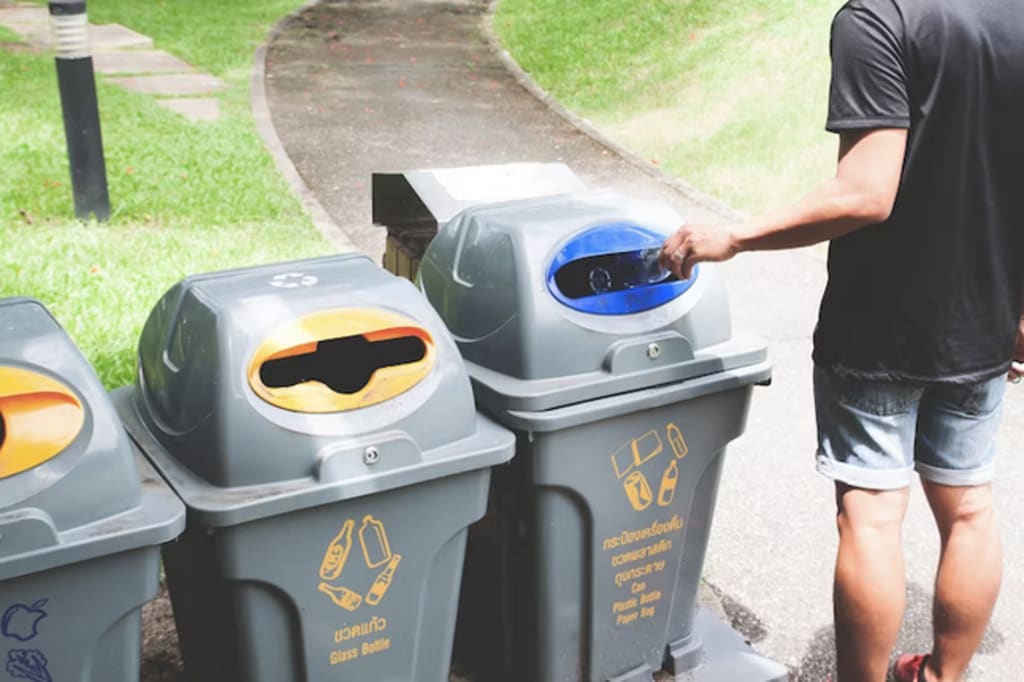Navigating Birmingham Bin Collection: Tips and Tricks
bin collection

Introduction:
Proper waste management is essential for maintaining a clean and healthy environment in any city. In Birmingham, like in many other urban areas, efficient bin collection services are crucial to ensure the proper disposal of waste. However, for residents and newcomers, understanding the intricacies of Birmingham bin collection system can be challenging. This article aims to provide helpful and insightful tips and tricks to navigate Birmingham's bin collection efficiently and responsibly.
Understanding the Bin Collection Schedule:
The first step in navigating Birmingham's bin collection is understanding the collection schedule. Different areas in the city might have varying collection days for different types of bins. The local council typically provides this information, and it is vital to have access to the most up-to-date schedule. Residents can visit the official council website or contact their local council office for the latest information on bin collection days in their area.
Separating and Recycling Waste:
One of the key aspects of responsible waste management is proper waste separation and recycling. Birmingham encourages residents to segregate their waste into different bins for recycling, general waste, and green waste. This not only helps reduce the amount of waste going to landfills but also contributes to the conservation of valuable resources.
Recycling Bins: Recycling bins are meant for items such as paper, cardboard, plastic bottles, glass jars, and metal cans. It is essential to rinse and clean these items before placing them in the recycling bin to prevent contamination.
General Waste Bins: General waste bins are for non-recyclable waste that cannot be composted. However, residents should always try to reduce their general waste by recycling and composting as much as possible.
Green Waste Bins: Green waste bins are for garden waste such as grass cuttings, leaves, branches, and plant trimmings. It is essential not to include any non-green waste items in these bins, as it can disrupt the composting process.
Understanding Bin Labels and Colors:
In Birmingham, each type of bin is usually labeled with specific colors and symbols to indicate its purpose. Understanding these labels is crucial to ensure that the right waste is placed in the appropriate bin.
Recycling Bin: The recycling bin is commonly labeled with a blue lid and often displays symbols representing the types of recyclable materials that should be placed inside.
General Waste Bin: The general waste bin typically has a black or gray lid, indicating that it is for non-recyclable waste.
Green Waste Bin: The green waste bin is usually labeled with a brown lid or a green body, clearly indicating its purpose for garden waste.
Avoiding Contamination:
Contamination occurs when the wrong types of waste are placed in specific bins. It is essential to avoid contamination, as it can lead to recycling and composting efforts being wasted. For instance, placing non-recyclable items in the recycling bin or general waste in the green waste bin can contaminate the entire batch, rendering it non-recyclable.
To prevent contamination, residents should familiarize themselves with the specific guidelines for each bin type and be cautious when disposing of waste. Moreover, keeping bins clean and free from any leftover liquids or food scraps can further prevent contamination.
Maximizing Bin Space:
Residents in Birmingham often face the challenge of limited bin space, especially for general waste. To maximize bin space and avoid overflowing bins, consider the following tips:
Compressing Waste: Flatten cardboard boxes and crush plastic bottles and cans to make more space in the recycling bin.
Reducing Food Waste: Minimize food waste by planning meals, storing food properly, and composting kitchen scraps.
Avoiding Bulk Waste: For large or bulky items that cannot fit in the bins, residents can take advantage of local recycling centers or arrange for bulk waste collections with the local council.
Reporting Bin Collection Issues:
Despite the best efforts of the council, sometimes issues may arise with bin collections, such as missed pickups or damaged bins. In such cases, it is essential to report the problem promptly. Most councils provide helpline numbers or online forms for residents to report issues related to bin collection. By reporting problems, residents help ensure that the waste management system functions smoothly.
Conclusion:
Properly navigating Birmingham's bin collection system is crucial for responsible waste management and maintaining a clean environment. Understanding the collection schedule, segregating waste, and recycling correctly are essential steps for residents to take. By familiarizing themselves with bin labels and colors and avoiding contamination, residents can contribute significantly to efficient waste disposal. Maximizing bin space and reporting any collection issues are additional ways to ensure the system operates smoothly.
With these tips and tricks, Birmingham residents can play an active role in waste management, making the city cleaner and more sustainable for future generations. By working together, the community can create a positive impact on the environment and set an example for other cities to follow.





Comments
There are no comments for this story
Be the first to respond and start the conversation.